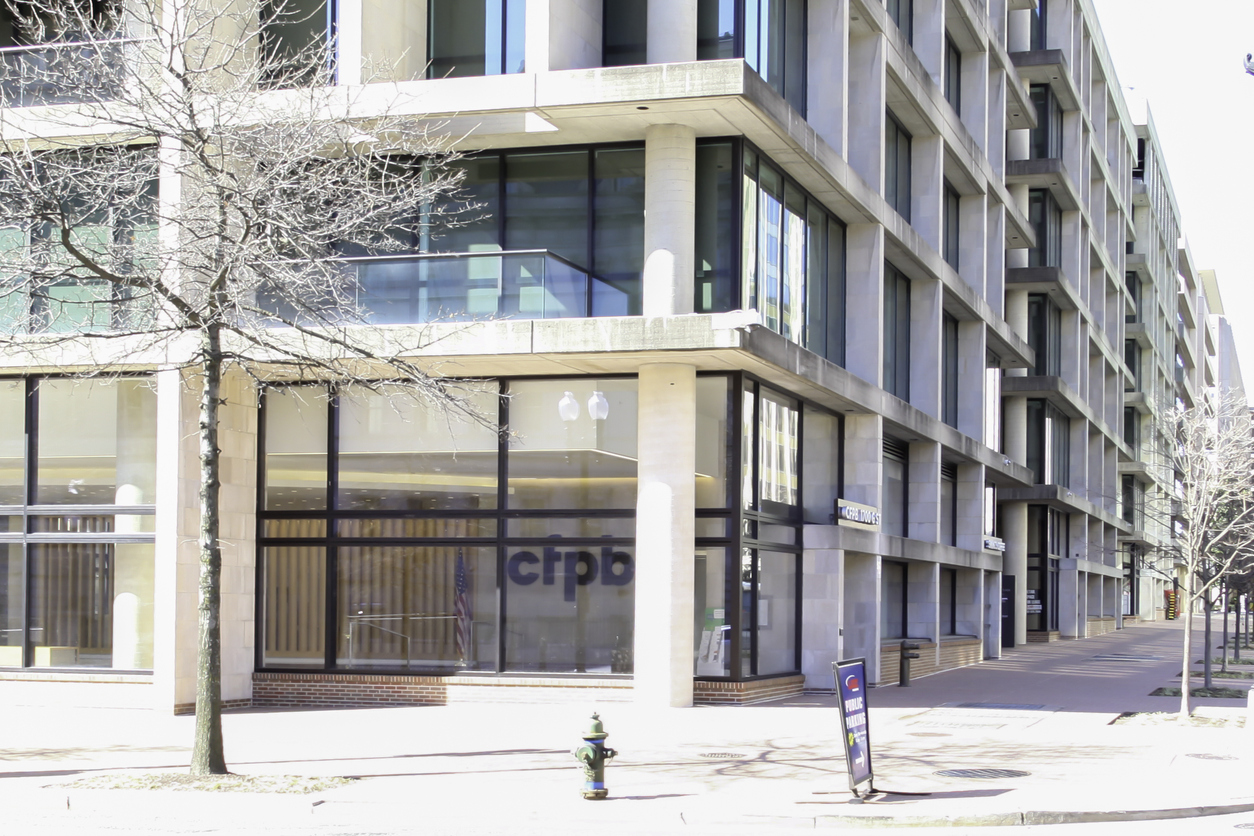CBA Statement On New CFPB Orders Examining Fintech ‘Buy Now, Pay Later’ Marketplace

Consumer Bankers Association President and CEO Richard Hunt today released the following statement after the Consumer Financial Protection Bureau (CFPB) issued a series of orders to collect information on the business practices of five fintech companies offering “buy now, pay later” (BNPL) credit, including: Affirm, Afterpay, Klarna, PayPal, and Zip.
“It’s good to see the CFPB take this much-needed step to protect consumers. As the rise in banking activity outside our nation’s well-regulated and well-supervised banking system accelerates, so too does the risk to consumers who do not receive the same level of protection from fintech companies as they do from traditional banks. Our members believe in and embrace the highly competitive banking environment and the positive innovations that stem from it, including BNPL products. We welcome efforts by the CFPB and other regulators to ensure a level playing field, regardless of where American families go – or the tools they use – to meet their financial needs.”
Rapid Growth of BNPL
BNPL allows customers to purchase items without paying for the total amount upfront, instead spreading out the remaining cost over a predetermined number of installment payments. With most companies offering interest-free financing and a brisk approval process, the popularity of the product has exploded. According to a 2019 study examining the state of the market from McKinsey, point-of-sale (POS) financing is a proposition that has been around for some time, but its pace of growth has accelerated due to enhanced integration of POS financing among leading merchants, better application experiences, and newer business models.
- According to a survey conducted by Qualtrics on behalf of Credit Karma, 44% of Americans have used BNPL products to acquire an item they needed and 75% of those who have used BNPL services have used them at least twice, indicating most consumers were satisfied enough with their first experience to do it again.
- PayPal, which launched its “Buy in 4” platform in August 2020, has already seen more than 9 million Americans use the service. Volume sales on Black Friday totaled 750,000 transactions within 24 hours - five times greater than last year - capping off a 400% year-over-year rise.
- Younger Americans appear to be driving the growth of BNPL adoption, according to a CNBC|Momentive surveyconducted last month, which found the 18-34 years old demographic was nearly twice as likely to use buy now pay later for holiday purchases this year.
- Overall, consumers will make nearly $100 billion in retail purchases using BNPL programs in 2021—up from $24 billion in 2020, and $20 billion in 2019, according to research from Cornerstone Advisors. Millennials’ use of BNPL has more than doubled since 2019 and Gen Xers’ adoption more than tripled.
The Need For Level Playing Field Has Never Been Greater
Even as a growing number of Americans utilize short-term installment financing to make purchases, the nascent nature of the market has made it difficult for policymakers to gather and analyze consumer behavioral trends surrounding these products. Further, many of the BNPL products in the market are provided by fintechs, which do not abide by the same broad oversight requirements as traditional banks, depriving consumers of the protections they deserve and contribute to the following implications:
- Repayment Behavior: Non-bank BNPL providers do not typically engage in rigorous underwriting practices and only perform a “soft” inquiry on a consumer’s credit. According to Credit Karma, 34% of BNPL users have fallen behind on one or more payments. Of those who admitted to having missed at least one payment, 72% said they believe their credit score declined as a result of missing the payment(s), with 31% of those saying their credit score declined significantly. Bank BNPL providers, on the other hand, can rely on their unique insight into a consumer’s financial standing and credit history to more accurately assess risk.
- Fintech Fraud Risk: Unlike traditional banks, fintech BNPL platforms don’t conduct formal credit checks and instead use unique algorithms using customer profile information available to them. These “softer” controls are just one reason Kevin Gosschalk, founder and CEO of American fraud-prevention start-up Arkose Labs, said criminals are increasingly exploiting fintech BNPL platforms: “Fintechs are very lucrative because they’re typically fast-growing, early-stage companies. They have much lower controls than the big banks that have been around for many years on the security side, so it makes them a good target.”
- Potential For Abuse: Unlike non-bank BNPL providers, banks are subject to stringent regulatory standards, which protect consumers from unfair, deceptive, or abusive practices or other violations of federal consumer protection laws. In June, class action lawsuits were filed against BNPL giants Afterpay and Affirm over allegedly deceptive marketing practices.
Background
Since the Bureau’s founding more than a decade ago, the financial marketplace has rapidly evolved with the emergence of technology companies increasingly offering products and services traditionally handled by banks. While they directly compete for the same customers, these firms do not abide by the same stringent federal oversight requirements as America’s leading banks, posing a significant and growing threat of consumer harm.
Earlier this month, CBA, along with the American Bankers Association (ABA), sent a letter commending the CFPB for a series of orders to collect information on the business practices of large technology companies operating payments systems in the United States. The initial orders were sent to Amazon, Apple, Facebook, Google, PayPal, and Square. You can read the full letter from CBA and ABA HERE.
Recognizing the growing risks associated with this disparate regulatory framework, CBA has encouraged policymakers to modernize the rules of the road to reflect the modern banking landscape today. In a letter sent in October to Director Chopra, Hunt specifically urged the Bureau to mitigate the potential for consumer harm in the under-regulated fintech lending market by issuing a larger participant rule. You can read the full letter HERE.
Additionally, in an October op-ed in American Banker, Hunt stated why the regulatory disparity in the consumer lending market should alarm policymakers whose broad oversight reforms following the 2008 financial crisis were conceived before the word “fintech” was ever in their lexicon. You can read the full op-ed HERE.



